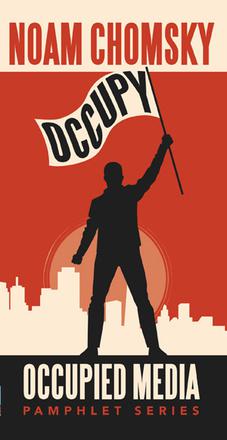Boris Groys: Google: Words Beyond Grammar (2011)
Filed under pamphlet | Tags: · cloud computing, google, language, philosophy, search

In times when the exchange with the world largely takes place on the Internet, the search engine Google primarily regulates the parameters and formats of this conversation. For the philosopher and media theoretician Boris Groys, Google thus takes on the traditional role of philosophy and religion. Philosophical precursors for the dissolution of different kinds of discourses, the emancipation of words from grammar and accordingly their equalizing, as Google produces it, span from Plato to Saussure’s structuralism to Derrida’s deconstruction. Another analogy is the twentieth-century avant-garde’s production of word clouds that are freed from their context, in particular the Conceptual art of the 1960s and ’70s. As a result of the radical freeing of words, Groys names “the struggle for a utopian ideal of the free flow of information—the free migration of liberated words through the totality of social space.”
Publisher Hatje Cantz, December 2011
Series: dOCUMENTA (13): 100 Notizen – 100 Gedanken No. 046
English/German edition
ISBN 3775728953, 9783775728959
36 pages
publisher
publisher
google books
PDF (English only, 17 pages, updated on 2012-11-7)
Comment (1)Noam Chomsky: Occupy (2012)
Filed under pamphlet | Tags: · activism, money, occupy movement, politics, protest

“Since its sudden appearance in September 2011, the Occupy movement has spread to thousands of towns and cities across the world. For some it’s the economy. For others, it’s something deeper. Through relentless organizing and ongoing civil disobedience, the movement now occupies the global conscience as its influence spreads from street assemblies and protests to op-ed pages and the corridors of power. From the movement’s onset, Noam Chomsky was there, offering his voice, his support, and his detailed analysis of what’s been going down and what might be done.
In Occupy, Chomsky presents his latest thinking on the core issues, questions and demands that are driving ordinary people to protest. How did we get to this point? How do the wealthiest 1% influence society? How can we separate money from politics? What would a genuine democracy look like? How can we create new institutions to increase freedom and equality for all? Following the old course, says Chomsky, isn’t going to work. If we continue to follow the model of growth set for us by the 1%, we’ll be “like lemmings walking off a cliff.” The only alternative is to get involved and fight for a better future. If not now, when? If not us, who?
Occupy also features graphics by R. Black, photography by Alex Fradkin and Stanley Rogouski, and a “What To Do If You Get Arrested” guide for protestors written by The National Lawyers Guild. Read this book if you want to do something to fight back against corporate influence and government control.”
Publisher Zuccotti Park Press, Brooklyn, New York, 2012
Occupied Media Pamphlet series
ISBN 9781884519017
128 pages
PDF (added on 2017-12-2)
MOBI (updated on 2017-12-2)
Lawrence Lessig: One Way Forward: The Outsider’s Guide to Fixing the Republic (2012)
Filed under pamphlet | Tags: · capitalism, corruption, crowdsourcing, finance, money, occupy movement, open source, politics, wikipedia, youtube

“Something is clearly rotten in our Republic. Americans are disillusioned with the political system and angry as hell. They feel like outsiders in their own nation, powerless over their own lives, blocked from having a real voice in how they are governed. But all of this can change. Lawrence Lessig, the renowned Harvard Law School professor and political activist presents a user-friendly, bipartisan manifesto for revolution just when we need it the most. His audaciously simple solution? Kill political corruption at its root: money.”
Publisher Byliner Inc., San Francisco, February 2012
ISBN 1614520232, 9781614520238
Commentary: Cory Doctorow (BoingBoing, 2012).
Author (discussion space for revision of the book)
Publisher
EPUB (updated on 2012-6-13)
MOBI (updated on 2012-6-13)

